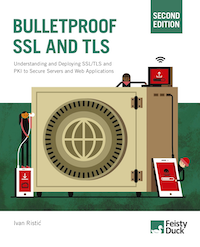SSL Labs test for the Heartbleed attack
Heartbleed is a name for a critical vulnerability in OpenSSL, a very widely deployed SSL/TLS stack. A coding error had been made in the OpenSSL 1.0.1 code, which was subsequently released in March 2012. The vulnerability is in the rarely used heartbeat mechanism, specified in RFC 6520. The error allows an attacker to trick the server into disclosing a substantial chunk of memory, repeatedly. As you can imagine, process memory is likely to contain sensitive information, for example server private keys for encryption. If those are compromised, the security of the server goes down the drain, too.
Your server is probably vulnerable if it's running any version in the OpenSSL 1.0.1 branch. If you'd like to verify if you're vulnerable, today I released a new version of the SSL Labs Server Test. I went through a lot of effort to implement a test that doesn't attempt exploitation (no server data is retrieved). So it should be safe to use. Despite the availability of the test, if you can identify the library version number, I would urge to assume that you are vulnerable, even if the test is not showing a problem.
It's difficult to underestimate the impact of this problem. Although we can't conclusively say what exactly can leak in an attack, it's reasonable to assume that your private keys have been compromised. Addressing this issue requires at least three steps: 1) patch, 2) replace the key and certificate, and 3) revoke the old certificate. After that you will need to consider if any additional data might have been leaked too, and take steps to mitigate the leak.
Unless your server used Forward Secrecy (only about 7% do), it is also possible that any past traffic could be compromised, but only if you are faced with a powerful adversary who has means to record and store encrypted traffic. If you did not before Forward Secrecy before, now is a great time to ensure you do support it from now on. If this topic is new for you, you can follow my advice here and here.
For more details on the nature of this OpenSSL blog, have a look at this post from Matthew Green.
 |
MY BOOK: If you like this blog post, you will love Bulletproof TLS and PKI. For system administrators, developers, and IT security professionals, this book provides a comprehensive coverage of the ever-changing field of SSL/TLS and Internet PKI and will teach you everything you need to know to protect your systems from eavesdropping and impersonation attacks. It's available now. |


